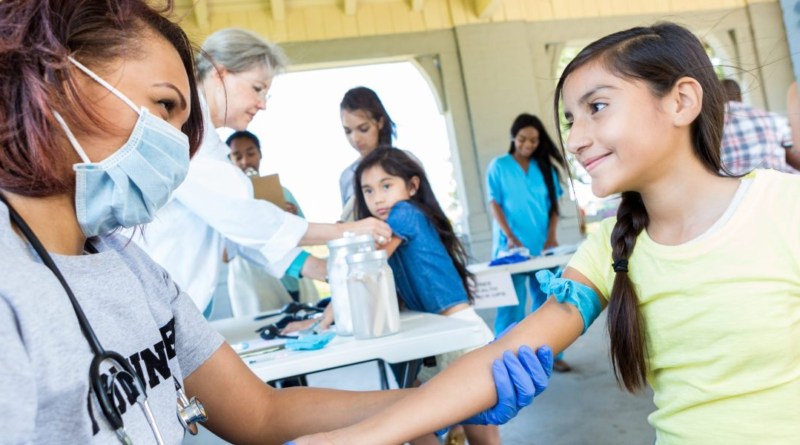Your blood type can make you more likely to get COVID, new research suggests. Who's most at risk
The idea was floated early in the pandemic, as scientists worked to determine why some became much sicker than others.
Initial research suggested that those with Type A blood might be at an elevated risk compared to those with Type O—and new research published Tuesday in the journal Blood seems to confirm the notion.
Those with Type A blood—about a third of the U.S. population—are at a 20% to 30% greater risk of infection with the novel coronavirus than those with Type O blood (nearly half of Americans), Dr. Sean Stowell, associate professor of pathology at Harvard Medical School and lead author on the study, tells Fortune.
There’s no question that anyone—and maybe everyone—is at risk for the virus. Indeed, the majority of Americans have had it, even if they’re unaware, according to data collected by U.S. public health officials that looks at COVID antibodies from infection—not vaccination—in those who get their blood drawn at commercial labs.
What factors can increase my risk of getting COVID?
There are multiple known factors that influence if, and how severely, one is infected with COVID. They include whether or not one’s immune system works well; whether or not one has diabetes, obesity, or other health conditions that seem to predispose them to the disease; and the amount of virus one is exposed to.
Blood type appears to be another factor that tips the scales. With everything else being equal, if a Type A and a Type O are sitting side by side and are both coughed on by a COVID-positive person, Type A is slightly more likely to get sick, Stowell says. The same is true for the initial SARS-CoV-1 coronavirus, which caused the 21st century’s first pandemic, in 2003.
Is the research even relevant anymore? The planet is no longer in pandemic status, according to the World Health Organization, which declared it over in May.
The virus, however, is still circulating around levels seen during the summers of 2020 and 2021, according to U.S. wastewater data, and is far from a thing of the past. It currently doesn’t cause severe disease for most, but evolution could propel it back toward the dangerous end of the spectrum, Stowell and other experts contend.
Thus, knowing “one very small piece of the puzzle”—how blood type plays into one’s susceptibility—could become relevant again in the future, if new, potentially troublesome variants emerge, Stowell says.
The knowledge could also help scientists understand how and why other viruses, like cholera and malaria, tend to prefer certain blood types as well, he adds.
More research needs to be done to understand if COVID shows a preference for blood types B and/or AB. Stowell’s team is currently looking into how the virus responds to Type B. While research is ongoing, whether or not one has such a blood type may become more relevant if they’re exposed to the virus orally.
The hypothesis hasn’t been tested, but “it’s possible,” he says.

